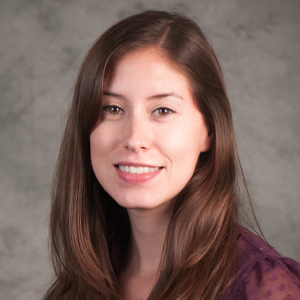Serving students with passion
Growing up in North Carolina, Margaret Kanipes spent her summers exploring rocks, minerals and animal specimens in her father’s junior high earth science classroom. These early encounters with science inspired her to study chemistry with the goal of becoming a dentist, a dream her father had been unable to pursue due to financial limitations.
Kanipes enrolled in North Carolina Agricultural & Technical State University planning to transfer in two years to Howard University for a joint chemistry and dentistry program. However, after her first year at NC A&T, her chemistry professor and chair of the department, Walter Wright, urged Kanipes to pursue research with Lynda Jordan, an associate professor of chemistry. In Jordan’s lab, Kanipes worked on isolating and characterizing phospholipase A2 from the human placenta.
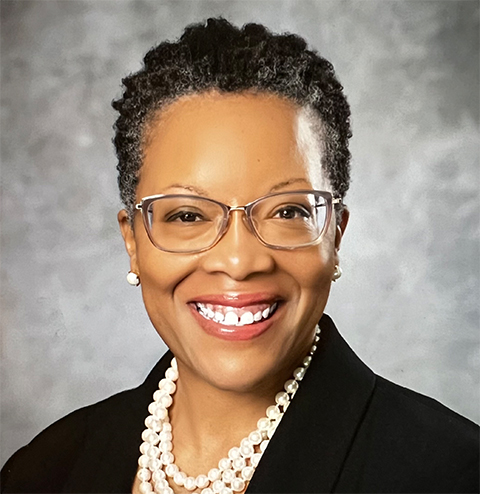
Her research experience in Jordan’s lab led Kanipes to participate in the Maximizing Access to Research Careers, or MARC, program in her junior year and set her on an unexpected path.
“How I ended up getting my Ph.D. at the end of the day was really because of great mentors along my pathway,” she said. “Our MARC director, Dr. James Williams, would call us Mr. and Ms. in the classroom to help solidify our identities as future scientists and that this is a real serious business, and I liked that.”
Kanipes also tutored other students in chemistry and found she had a true passion for teaching. Attending her first research conference, where she was able to exchange ideas with academics from all over the country, cemented Kanipe’s new goal of becoming a professor.
“I was excited to follow this path,” she said. “This is where I saw myself fitting in — and of course, I thought I was a little professor anyway.”
She pursued her Ph.D. in biological sciences in Susan Henry’s lab at Carnegie Mellon University, where she moved from chemistry to molecular biology.
“I thought to myself, I must be the craziest person in the world to make this transition,” Kanipes said. “But then I realized that chemistry is the foundation of everything, and having a chemistry background really helped me with work that I did in my Ph.D.”
Kanipes studied phospholipid biosynthesis, which involved genetics, cloning and purification. “I had a number of skills that really served me well and would be considered interdisciplinary work,” she said. “I would like to think I was ahead of the time in being able to cross these different fields and work in different areas to solve a problem.”
The power of mentorship
Kanipes went on to do a postdoctoral fellowship in lipid biochemistry at Duke University. After facing several challenges, she considered leaving her postdoc early. Ready to call it quits, she called Williams, her former MARC adviser.
“He wasn’t mean, but he also wasn’t nice,” Kanipes said. “He said, ‘You are not leaving. You have two options, you either finish this postdoc out or you need to go find another.’”
Williams encouraged Kanipes to call Henry, her Ph.D. adviser, to talk about what she was going through. Henry helped her to plan out projects to finish her postdoc as well as ones she could take with her when applying for junior faculty positions. With a renewed sense of confidence, Kanipes returned to her postdoc and was invited to present her work at the international Endotoxin Society meeting where she received a Young Investigator’s Award. Upon completing her postdoc, she had four offers for faculty positions.
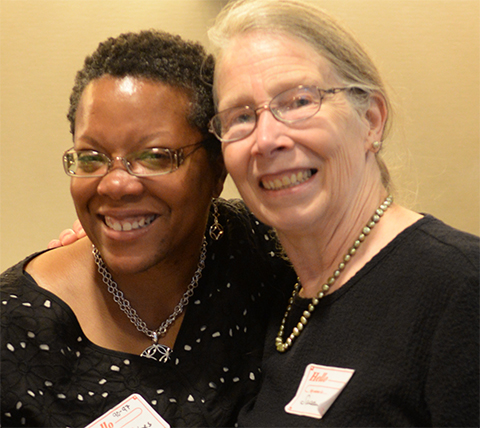
The power of mentorship was one reason Kanipes wanted to be a professor. “Here I was at a time that was really challenging to me, and I wasn’t alone, I had someone to go to,” she said. “They knew what my purpose and passion were, they understood my potential and knew that I was going in the right direction. Great mentors see you for who you are and help you to realize your full potential.”
Kanipes became an assistant professor in biology at Fayetteville State University and then joined NC A&T as an associate professor in chemistry in 2004. “I love my alma mater and I wanted to help students that look like me,” she said.
She was awarded grants through the National Science Foundation, the National Institutes of Health, the Department of Defense, and the Department of the Army. She received the NC A&T Young Investigator of the Year Award in 2007. From 2011 to 2015 she served as interim chair of the chemistry department where she worked with other faculty to develop a curriculum designed to help students matriculate in their programs and be successful.
In 2016, Kanipes was named director of the STEM Center of Excellence for Active Learning where she continued to help faculty develop pedagogy and curricula that would retain students in STEM programs and enable them to succeed in STEM careers. For her efforts, she received the College of Science and Technology Merit Teaching Award and the Department of Chemistry Teaching Excellence Award in 2017.
Realizing your true passion
In 2017, Kanipes received an offer to become the director of the University Honors Program at NC A&T. Initially, she was unsure whether it was the right role for her. She had her own lab, students, grants and classes. As one of the few African American woman professors on campus, she felt an obligation to continue in research, and she struggled with the decision to shut down her research lab. She reflected on her strengths as a person and as a leader and asked herself what she really loved to do.
“My passion is serving students, and I am good at it,” she said. “I enjoy developing programming and making policies that support students outside of the classroom and lab. So, after really thinking about it I accepted, and it’s one of the best decisions I have made in my life.”
As director of the UHP, Kanipes increased the number of honors students from 450 to over 850, developed the Cheatham-White Scholarship Enrichment Program, and increased Honors Lecture Series participation by 150%. In 2022, she became the first dean of the inaugural Honors College at NC A&T.
While she no longer works in the lab, Kanipes still makes big waves in STEM. As dean, she mentors STEM and non-STEM students and develops programs to increase STEM participation, diversity and retention. She is the principal investigator of an NIH-funded grant called Enhancing Science, Technology, Engineering, and Math Educational Diversity, or ESTEEMED, which aims to enhance the diversity of the biomedical research workforce by preparing first- and second-year students to pursue advanced STEM degrees. She also serves as principal investigator on an NSF-funded collaborative grant called the Center for the Advancement of STEM Leadership, which supports the professional development of leaders at historically black colleges and universities and helps them to broaden student participation on their campuses. Kanipes continues to publish research in peer-reviewed journals focused on structural and institutional transformation in higher education.
Along with her career success, Kanipes is a mother to three boys. She credits her family and support network with helping her achieve balance, something she stresses with the students and faculty she mentors.
“What are you doing to take care of yourself?” she asks her mentees. “You can’t pour from an empty cup. We must take care of ourselves so that we can do the work that we are meant to do.”
Kanipes also stresses the importance of having a mentor who will advocate for and support you even if they don’t look like you. And she says to always keep moving forward. “Don’t play the whole game of I wish I had done X Y, and Z,” she said. “Focus on the lessons learned along the way. You take those lessons, and you use what you learned in the next part of your life.”
At the end of the day, Kanipes keeps her focus on students. “That is my purpose and passion, what I look forward to every day when I come to work,” she said. “What I think about deeply is student success.”
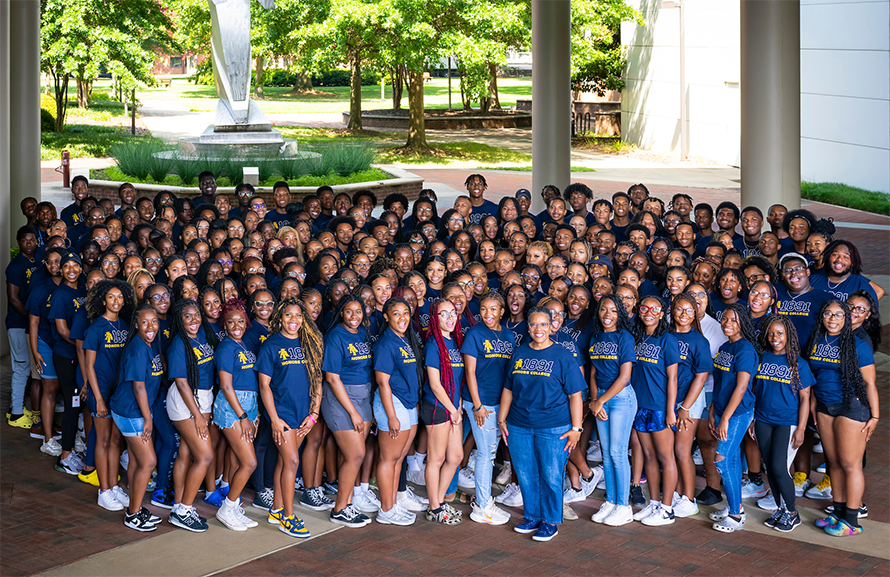
Enjoy reading ASBMB Today?
Become a member to receive the print edition four times a year and the digital edition monthly.
Learn moreFeatured jobs
from the ASBMB career center
Get the latest from ASBMB Today
Enter your email address, and we’ll send you a weekly email with recent articles, interviews and more.
Latest in People
People highlights or most popular articles

Mydy named Purdue assistant professor
Her lab will focus on protein structure and function, enzyme mechanisms and plant natural product biosynthesis, working to characterize and engineer plant natural products for therapeutic and agricultural applications.
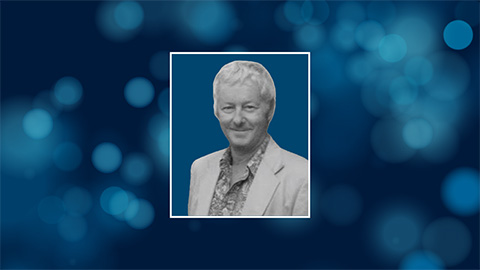
In memoriam: Michael J. Chamberlin
He discovered RNA polymerase and was an ASBMB member for nearly 60 years.
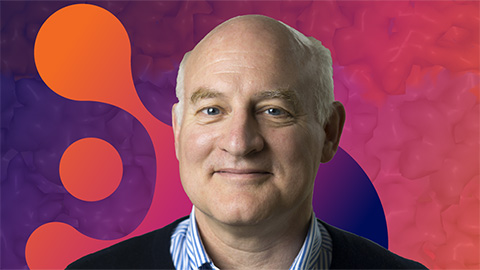
Building the blueprint to block HIV
Wesley Sundquist will present his work on the HIV capsid and revolutionary drug, Lenacapavir, at the ASBMB Annual Meeting, March 7–10, in Maryland.

In memoriam: Alan G. Goodridge
He made pioneering discoveries on lipid metabolism and was an ASBMB member since 1971.
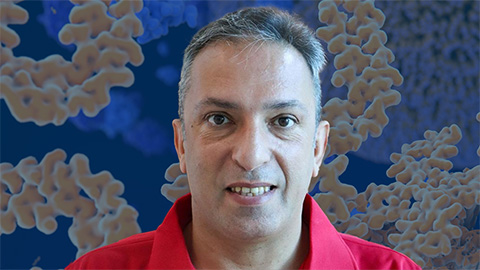
Alrubaye wins research and teaching awards
He was honored at the NACTA 2025 conference for the Educator Award and at the U of A State and National Awards reception for the Faculty Gold Medal.
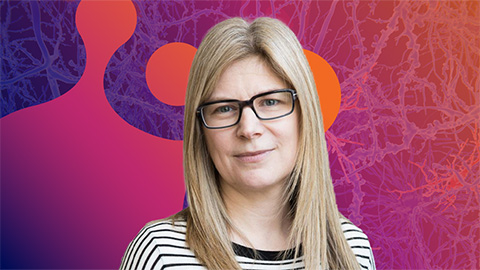
Designing life’s building blocks with AI
Tanja Kortemme, a professor at the University of California, San Francisco, will discuss her research using computational biology to engineer proteins at the 2026 ASBMB Annual Meeting.

